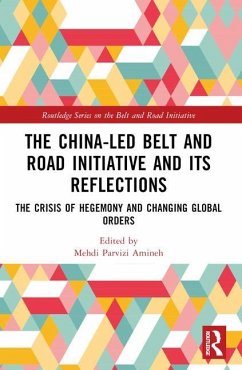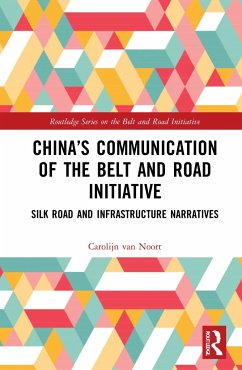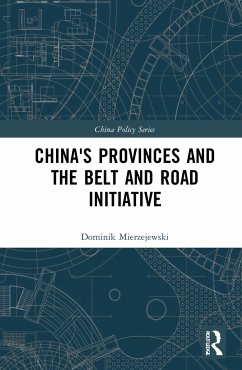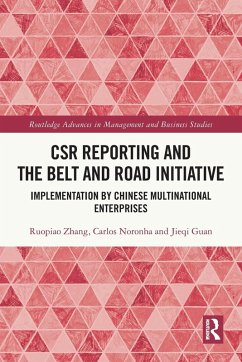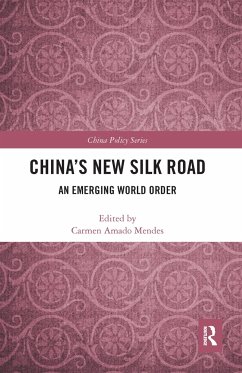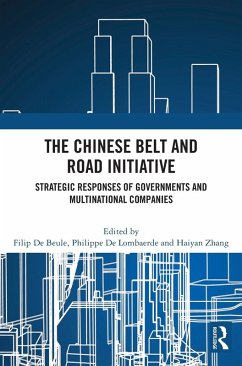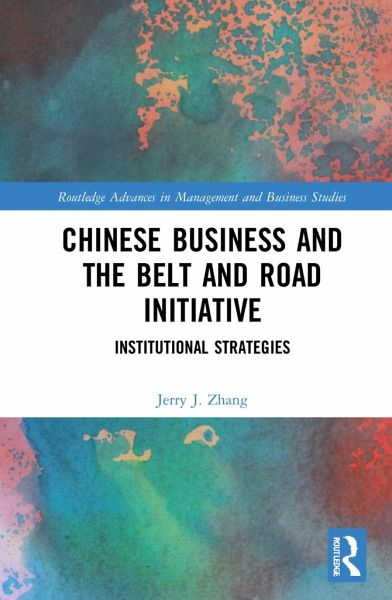
Chinese Business and the Belt and Road Initiative
Institutional Strategies
Versandkostenfrei!
Versandfertig in 6-10 Tagen
45,99 €
inkl. MwSt.
Weitere Ausgaben:

PAYBACK Punkte
23 °P sammeln!
This book looks at how Chinese companies optimize investment opportunities while implementing the Belt and Road Initiative (B&R or BRI). Specifically, it studies five high-profile infrastructure projects undertaken by Chinese firms. Going in-depth through case-study analysis, this book fills a gap by providing the background stories of these projects.By applying a case study approach to five notable and representative B&R projects, including Hambantota Port, the Port de Djibouti, and China-Belarus Industrial Park, it is found that strategies of Chinese firms to implement the BRI have been desi...
This book looks at how Chinese companies optimize investment opportunities while implementing the Belt and Road Initiative (B&R or BRI). Specifically, it studies five high-profile infrastructure projects undertaken by Chinese firms. Going in-depth through case-study analysis, this book fills a gap by providing the background stories of these projects.
By applying a case study approach to five notable and representative B&R projects, including Hambantota Port, the Port de Djibouti, and China-Belarus Industrial Park, it is found that strategies of Chinese firms to implement the BRI have been designed to achieve property rights security, reduction of transaction costs, and internalization of benefits overflowing from expanded business scope or multiple business lines.
With firsthand data from host stakeholders and on-ground project managers, this book is a highly relevant and valuable text for policy makers and researchers hoping to understand the policy impact and implications of B&R investments on targeted countries
By applying a case study approach to five notable and representative B&R projects, including Hambantota Port, the Port de Djibouti, and China-Belarus Industrial Park, it is found that strategies of Chinese firms to implement the BRI have been designed to achieve property rights security, reduction of transaction costs, and internalization of benefits overflowing from expanded business scope or multiple business lines.
With firsthand data from host stakeholders and on-ground project managers, this book is a highly relevant and valuable text for policy makers and researchers hoping to understand the policy impact and implications of B&R investments on targeted countries






